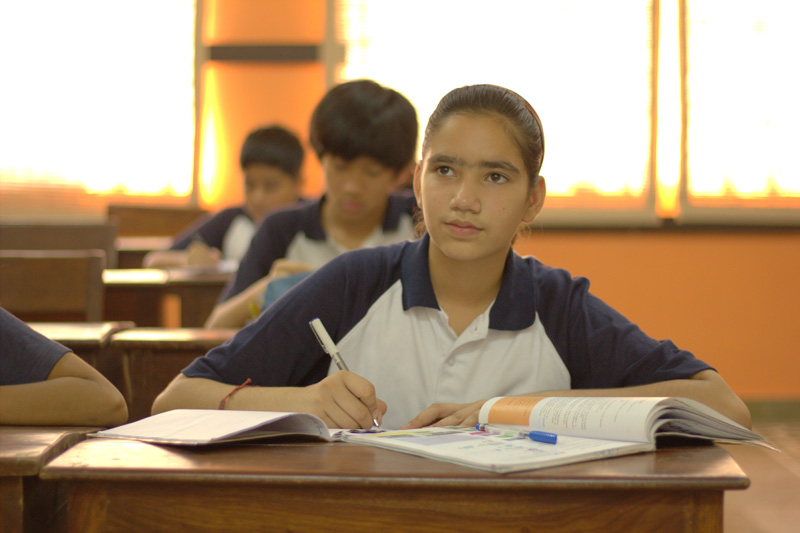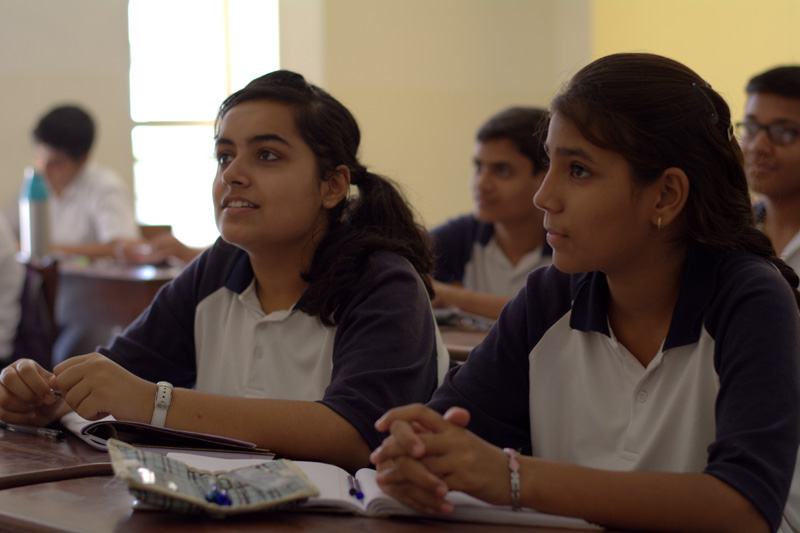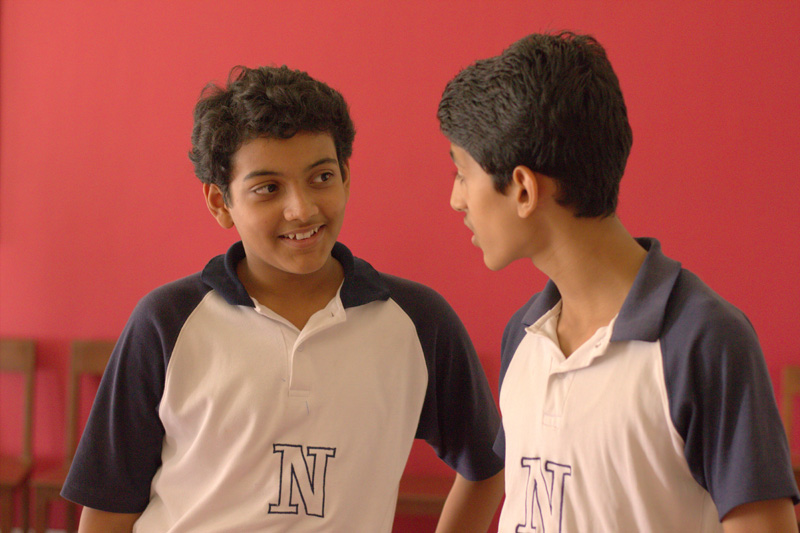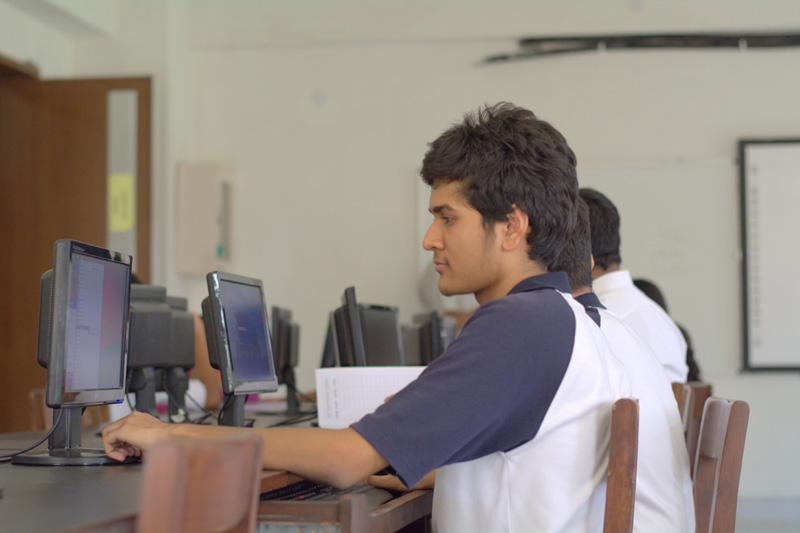Senior School
|
The High School is the logical extension of the principles of Neerja Modi School that begin in the first program. It is devoted to educating the individual in independent thought and ethical action. By stressing integrity as well as academic achievement, an NMS education encourages personal resourcefulness, intellectual rigour and social responsibility. The goals of the school in the new millennium are consistent with the philosophy that students should be "Industrious, Sincere, Open-minded and Independent." In addition, two values form the instructional methodology "Freedom, the right of students to develop at their own pace, and Co-operation or Interaction through group life," a recognition that to progress, all members of society of learners must interact and share. |
|
|
The NMS students body aims to be diverse in its interests and backgrounds; individuals thrive in the NMS community where the school's philosophy is to help each student progress as far as possible in an academic or extra curriculur interest. The school is affiliated with the Central Broad of Secondary Education (CBSE), India. |
|
|
The course is based upon an approach to course design which recognises the importance of developing the students' communicating competence. The over-all objectives are:
By this time the child will have mastered the skills of Reading, Writing, Listening and Speaking.
|
|
|
As the school is hosting a lot of foreign and non-resident students and educators, development of skills in Hindi is as fundamental as the remaining ones. Hindi is taught to all students up till Grade VIII. Students are given a choice from amongst Sanskrit, French and German as the third language after Grade VI along with English and Hindi. After Grade VIII students are given a choice amongst Hindi, Sanskrit, French and German as the second language to pursue at the secondary level.
|
|
|
French and German are being taught to class V, VI, VII & VIII at the third language level up to Grade VIII as required by the Central Board. Other languages, provided they are approved by the Examining authority, can be introduced subject to availability of the specific staff.
|
|
|
Mathematics should be visualised as the vehicle to train a child to think, reason, analyse and articulate logically. Apart from being a specific subject, it should be treated as a concomitant to any subject involving analysis and reasoning.
Teaching and learning of Mathematics at this level enables the child to consolidate the mathematical knowledge and skills acquired at the Junior & Middle levels- acquire knowledge and understanding of the terms, symbols, concepts, principles, processes, proofs etc.
|
|
|
Up to the grade X level Science is an integrated form is compulsory for all students. The teaching and learning of Science at this level in primarily directed towards problem solving and decision making on the basis of knowledge of the key concepts which cut across all disciplines of Science. The general aims are-
|
|
|
Social Science is an integrated study of History, Geography, Civics and Economics. The main thrust is in the direction of the interdependence of these subjects in shaping a society, its people, their attitude and outlook. Considerations for others must be highlighted and selfishness downgraded. Salient features of this study are-
|
|



